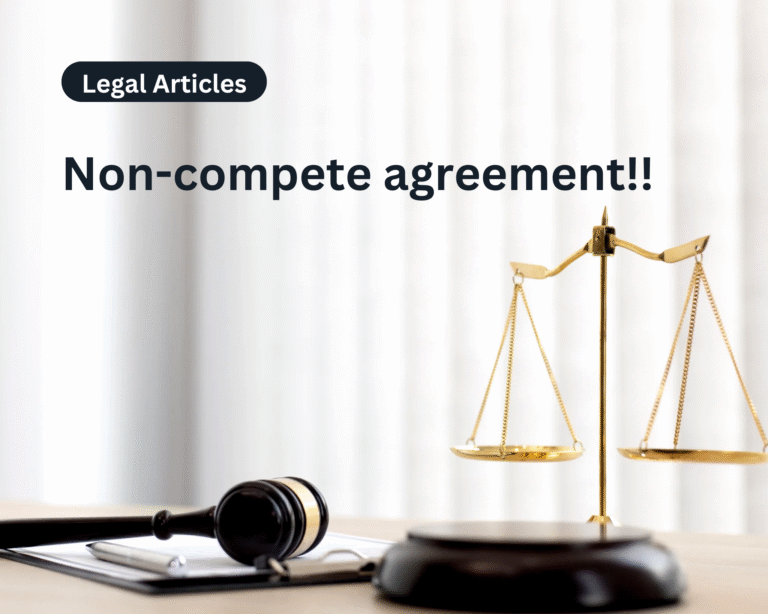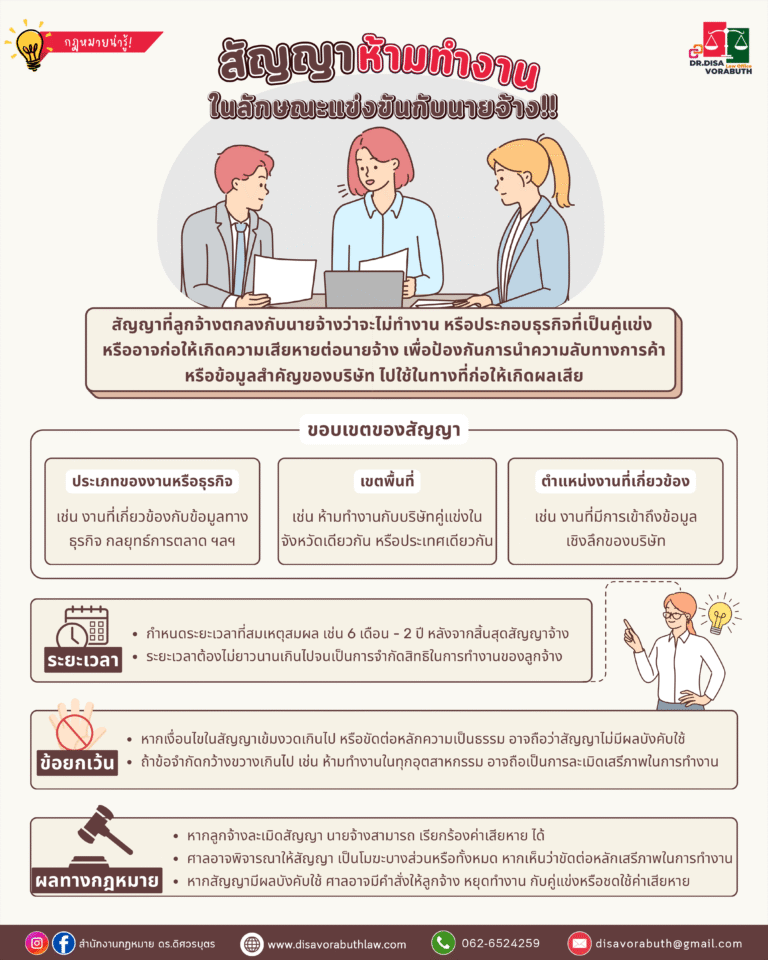Scope of the Agreement
✅ Type of Work or Business Such as employment or business activities involving access to business information, marketing strategies, or other proprietary knowledge.
✅ Geographical Scope For example, a restriction on working with competing companies within the same province or country.
✅ Relevant Job Positions Positions that involve access to the company’s confidential or sensitive internal information.
Duration
✅ Specify a reasonable duration, such as 6 months to 2 years after the termination of employment.
✅ The duration must not be excessively long to the extent that it unreasonably restricts the employee’s right to work.
Exceptions
✅ If the terms of the agreement are excessively restrictive or contrary to the principles of fairness, the agreement may be deemed unenforceable.
✅ If the restrictions are overly broad, such as a blanket prohibition against working in any industry, it may be considered a violation of the employee’s right to work.
Legal Consequences
✅ If the employee breaches the agreement, the employer may claim damages.
✅ The court may declare all or part of the agreement void if it is found to violate the principle of freedom to work.
✅ If the agreement is deemed enforceable, the court may order the employee to cease working with a competitor or to compensate the employer for damages.
Supreme Court Judgment No. 3580/2018
The agreement in question merely imposes a restriction on the employee’s ability to engage in business activities that directly compete with the employer, with a clear specification of the types of business involved. It does not constitute an absolute prohibition on the employee’s ability to earn a living. This type of agreement does not entirely block the employee’s ability to work; it only prohibits the employee from engaging in certain competitive activities for a limited period of time. It is a reciprocal contract that protects the legitimate business interests of both parties and does not permanently obstruct either party from earning a livelihood. As such, it does not violate public order or good morals and is not rendered void.
However, when considering the legal rights and obligations of both parties, the restriction period of five (5) years from the employee’s termination of employment is deemed to place an undue burden on the employee, beyond what would normally be expected. Therefore, it is determined that the restriction should be enforceable only for one (1) year from the date of the employee’s termination of employment, as it is fair and reasonable according to the Labor Protection Act B.E. 2541, Section 14/1, and the Unfair Contract Terms Act B.E. 2540, Section 5.
With over 12 years of legal experience, we are the trusted experts you can rely on for all your legal needs. Our expertise spans across various legal fields, including civil and commercial law encompassing contracts, litigation, and legal proceedings; labor law to help your business avoid disputes; as well as family law, inheritance law, consumer protection law, intellectual property law, criminal law, and other legal matters. We also provide comprehensive legal consultation and registration services.
With over 12 years of legal experience, we are the trusted experts you can rely on for all your legal needs. Our expertise spans across various legal fields, including civil and commercial law encompassing contracts, litigation, and legal proceedings; labor law to help your business avoid disputes; as well as family law, inheritance law, consumer protection law, intellectual property law, criminal law, and other legal matters. We also provide comprehensive legal consultation and registration services.




